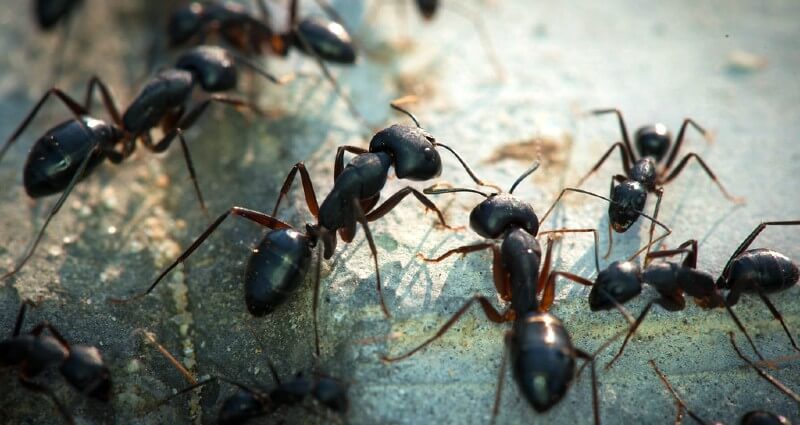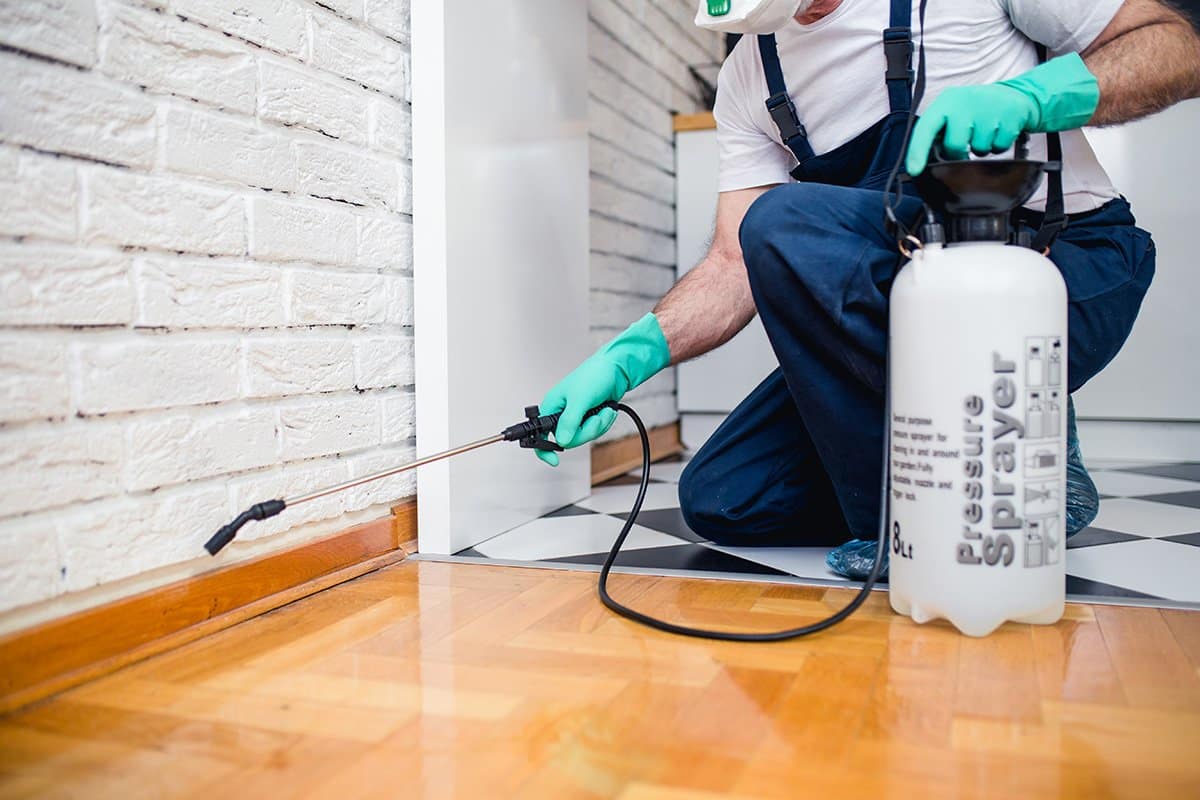Professional Termite Control Services: Protect Your Home from Termite Damage
Professional Termite Control Services: Protect Your Home from Termite Damage
Blog Article
Environmental Influence of Parasite Control: Balancing Efficiency With Sustainability
The ecological effect of parasite control is a crucial problem that calls for a delicate balance in between attaining effectiveness in making sure and managing bugs sustainability of our environments. As we aim to secure our plants, homes, and health and wellness from the hazards posed by parasites, the methods we use can unintentionally harm the atmosphere. From making use of harmful chemicals that leak into our dirt and water to the unexpected repercussions on non-target varieties, the consequences of conventional parasite control methods are far-ranging. Nevertheless, there are emerging methods that supply expect an extra lasting method to pest management. These remedies not only objective to attend to the instant parasite troubles but likewise take into consideration the lasting wellness of our world.
Unsafe Chemicals in Parasite Control
The utilization of damaging chemicals in pest control poses substantial ecological and health and wellness dangers that call for careful factor to consider and reduction techniques. Pesticides, chemicals, and herbicides are commonly made use of to eliminate bugs, yet their prevalent application can lead to unintended repercussions. These chemicals can pollute dirt, water resources, and the air, influencing not just the targeted insects however also helpful insects, wildlife, and people.

To attend to these risks, incorporated pest administration (IPM) methods are being advertised as an extra lasting option. IPM entails a combination of approaches such as organic control, habitat manipulation, and the targeted usage of pesticides as a last hope (ant control carrboro nc). By adopting an alternative strategy to pest control, we can decrease the ecological and health and wellness influences associated with damaging chemicals while effectively managing pest populations
Influence On Non-Target Variety
Taking into consideration the unexpected effects of insect control approaches, the impact on non-target species is a crucial aspect that requires complete assessment. While bug control steps intend to target particular insects, other organisms in the environment might be inadvertently influenced. Non-target varieties, including advantageous bugs, birds, animals, and even plants, can endure indirect or direct harm from pesticide applications or organic control techniques.
Chemicals can have dangerous or sub-lethal results on non-target species. Pesticides developed to battle a specific bug pest might damage pollinators like bees or all-natural predators such as ladybugs. Furthermore, chemical residues can accumulate in the setting, influencing non-target microorganisms in time. Biological control representatives, if not species-specific, can present threats to unplanned targets, interrupting the eco-friendly balance.
To mitigate the effect on non-target types, integrated insect management (IPM) approaches that emphasize an alternative approach to pest control are advised. These approaches prioritize making use of ecologically pleasant methods, lessening injury to advantageous organisms while efficiently handling pest populations. Carrying out thorough danger assessments and checking the end results of pest control initiatives are essential action in securing non-target species and promoting general ecosystem health and wellness.
Soil and Water Contamination
Unexpected environmental repercussions of pest control methods expand beyond impacting non-target types, with significant ramifications for soil and water contamination - termite control services. Chemicals, herbicides, and chemical plant foods made use of in insect control can leach right into the soil and pollute groundwater, posturing a hazard to both water and terrestrial environments.
Water contamination is one more essential concern connected with parasite control practices. Runoff from farming areas treated with pesticides can lug these chemicals right into close-by water bodies, influencing marine organisms and water top quality. Impurities in water resources can have significant effects, influencing not just water life yet likewise human wellness through the consumption of contaminated water or aquatic organisms. To reduce dirt and water contamination from insect control activities, incorporated pest monitoring strategies that focus on sustainability and minimize chemical inputs are crucial.
Air Contamination From Pesticide Use
Exposure to airborne chemicals during farming applications poses a significant concern for air pollution control steps. They can volatilize into the air and type unpredictable organic substances (VOCs) and various other airborne contaminants when chemicals are sprayed onto plants - ant control. These chemicals can add to the development of ground-level ozone, a significant component of smoke that can have damaging effects on human wellness, plant productivity, and total air high quality. Furthermore, chemical drift, where pesticides image source are brought by the wind to unintentional locations, can result in the contamination of close-by ecological communities and water bodies.

Methods for Lasting Bug Control
In the world of farming techniques, implementing lasting bug control techniques is critical for keeping eco-friendly equilibrium and securing plant returns. Sustainable pest control highlights making use of eco-friendly techniques to manage insect populaces properly while decreasing harm to non-target organisms and environments. Integrated Pest Monitoring (IPM) is an extensively embraced strategy that incorporates biological, cultural, physical, and chemical control approaches to attain long-term pest management services.
One secret approach in lasting parasite control is advertising biodiversity within agroecosystems. By enhancing all-natural opponents of pests, such as parasitoids and killers, farmers can minimize the requirement for synthetic pesticides. Plant turning and diversification are likewise effective techniques to interfere with pest life cycles and produce much less positive problems for parasites to grow. Furthermore, making use of pest-resistant crop selections and using methods like catch cropping can help in reducing pest stress without depending heavily on chemical treatments. Eventually, by integrating these sustainable bug control approaches, farmers can accomplish a balance in between pest administration performance and environmental stewardship.
Final Thought
To conclude, the environmental effect of bug control approaches should be carefully taken into consideration to stabilize efficiency with sustainability. Hazardous chemicals used in insect control can bring about soil and water contamination, air contamination, and damage non-target types - termite control services. It is crucial to execute lasting pest control strategies to minimize these unfavorable effects on the environment and promote a much healthier ecosystem for future generations
By embracing an all natural method to pest control, we can decrease the ecological and wellness impacts connected with harmful chemicals while successfully managing pest populaces.

To alleviate the air pollution caused by chemical usage, it is crucial to take on incorporated parasite administration approaches that focus on the usage of non-chemical parasite control techniques, such as plant rotation, all-natural killers, and resistant crop selections. Sustainable pest control stresses the usage of ecologically pleasant methods to take care of insect populations effectively while minimizing damage to non-target microorganisms and environments. Integrated Pest Administration (IPM) is an extensively taken on method that incorporates organic, social, physical, and chemical control methods to attain long-term insect monitoring solutions.
Report this page